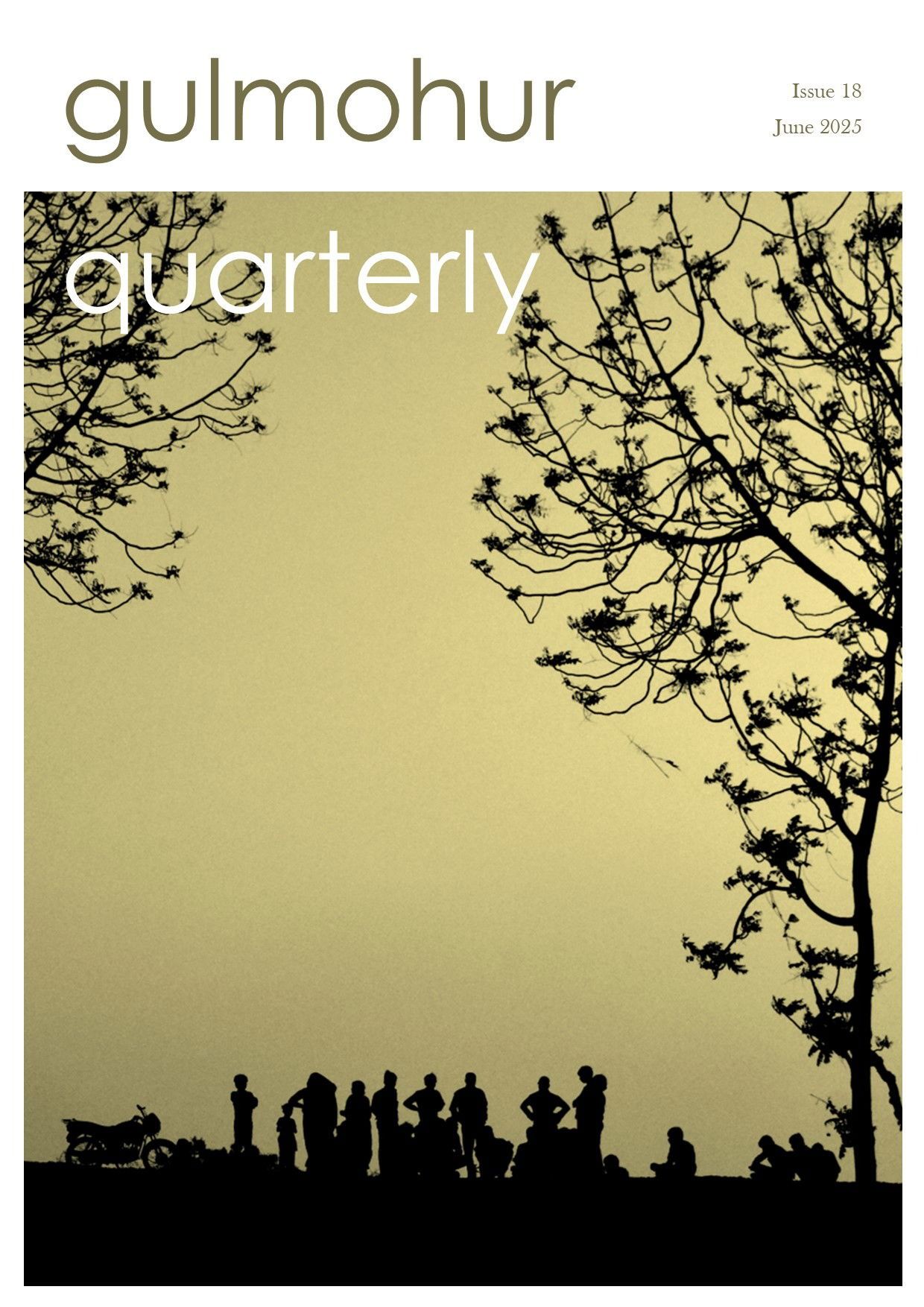Editorial: Issue 18/ June 2025

Occasionally, a literary magazine of our sorts, inadvertently finds itself with a dominant theme in its submissions. In this issue, one such theme that emerges across some of the fiction and poetry entries, authored by both genders, is that of the frustration and complaint caused by the ritualized monotony of married life for women, with a peculiar emphasis on the coldness and indifference of husbands. A young woman visiting her mother, who has herself discovered friendship in old age in the person of a neighbourhood widow, laments her marriage: “Pray that we fight, ammi. We must do at least one thing together, right?” In another story, the never-quarreling yes-man of a husband himself becomes the cause of great anguish for the wife, and drains out all liveliness from her living. A poet in Hindi poignantly puts the conundrum: “Without your reactions / the maps of my future fights are incomplete.” Thus, the indifference of the spouse becomes a discovery of interpersonal crises and brims forth as an imminent breakdown. The significant question then arises: will the traditional family and couple as units survive the strain of such fierce undercurrents of discontent? Or, is this precisely how we suffer the burden of domestic calm—through normative acceptance and occasional outburst? Another poet anticipates the trajectory of living together: “I’ll curl up in our bed, / half hollow half alien, / while the myth of our love hangs above us.” We hope our readers engage with these writings in earnest and share their reflections and understandings with the writers.
This issue has an excellent range of translations from Bangla, Urdu, Marathi, Hindi, Odia, and Punjabi. In the classic middle-class setting of a short story, we find two friends planning their holiday trip, while navigating through the various demands of domestic financing and fulfilling the routine expectations of hosting and ‘managing’ relations. Another writer explores the bygone days of the Emergency and its intersection with cinema, love, and daily life. A casually narrated story recounts the cruel suddenness of sexual violence and its impacts on one’s immediate relations. A poet who describes being “ogled & gazed & gawked at” ends the poem by stating plainly: “& like always, no one will / ever start a scene.” A tender short story dwells in the slow-paced acquaintance and friendship of two elderly men who find deep comfort in each other’s presence despite their starkly different personalities. A translated fiction satirizes the corruption in the municipal workings of a city, while another seeks to draw us into the concerns of old age, dependence, loss, and grief.
The poets in this issue raise the contemporary question of that rare thing these days—the spine!—while a Punjabi poet records the “outright refusal” to comply with Delhi’s commands during the farmers’ protests. The poets also complain about the unbearable, torturous heat of the past months, celebrate the quirks of train journeys, and resolve to ritualize the liberating gestures of a routine life. Out of a poet’s sharp disgust we hear: “O assassin’s children tell me / What do your father’s hands smell like?” This—as the world rages as spectators with genocide in the ‘background.’ There are, in these pages, expressions of queer love and its complexities, and the very ethereal experience of touch and intimacy, too. The sole essay in this issue grapples with the many dilemmas and interior refractions of a translator, who remarks, “Each day, with every interpretation, small pieces of my own voice disappear, replaced by the echoes of others.” As readers and thinkers, we might find significant such moments of critical gaze turned towards ourselves and our worlds.
*
gulmohur stands in solidarity with the jailed activists and intellectuals of the Bhima Koregaon case; the victims of communal hatred and of state violence; the victims of caste and gender violence; the victims of fundamentalist oppression anywhere in the world; and with all those who dissent in the spirit of democracy to safeguard our ever-diminishing freedoms. We stand for the liberation of Palestine. We extend our solidarity to the Mahabodhi Mukti Andolan.
*
We would like to express our profound thankfulness to our readers and well-wishers everywhere. We are immensely grateful to all our friends (on and off social media) who have helped us reach out. We also thank our contributors for trusting us with their submissions.
*
We hope you enjoy reading Issue 18 of the quarterly. We welcome critical feedback from our readers. Happy Pride!
Editors
gulmohur
June 2025